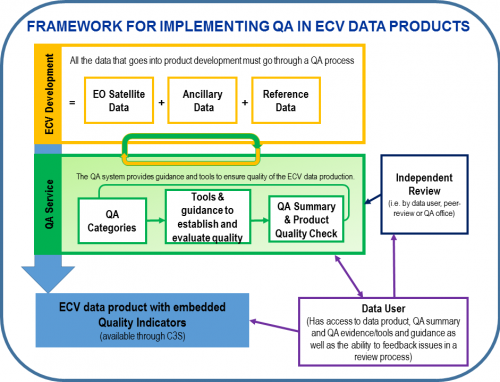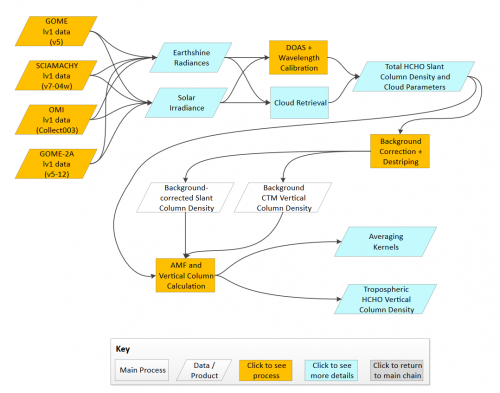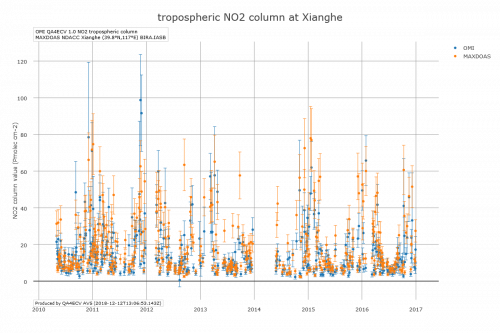The need for a data quality assurance framework
Climate change understanding, mitigation and adaptation require systematic observation of the climate system and identification of its natural and/or human causes of change. Key to this is the derivation of Essential Climate Variables (ECV) describing the chemical and physical properties of the biosphere, using reliable data from multiple sources.
Currently 54 ECVs have been identified for the Global Climate Observing System, spanning the atmospheric, cryospheric, oceanic and terrestrial domains. In recent projects supported by the European Space Agency and the European Commission (EC), emphasis has been placed on the generation of climate data records (CDRs) to assess long-term (multi-decadal) trends, patterns and fluctuations, based on:
- measurements from satellites
- monitoring networks
- complementary data sources
Fundamental to the scientific understanding of the climate system and to informed policy making, are the reliable documentation of the generation process and the rigorous quantification of the accuracy and validity of these CDRs. Nevertheless, comprehensive and fully traceable quality information is rarely available. Harmonisation among the different domains is also critically needed by data users.
Generic QA System for climate data records
Developed at the normalization institute NPL (UK) with BIRA-IASB expertise for the atmospheric domain and in remote sensing metrology, the QA4ECV Quality Assurance system has been applied to the generation of multi-decadal CDRs for six pilot ECVs of the atmospheric and terrestrial domains:
- NO2
- HCHO
- CO
- surface albedo
- leaf area index
- fraction of absorbed photosynthetically active radiation
Building on international standards in metrology, terminology and system engineering, this generic QA system provides guidance on how to assure, evaluate and document ECV data quality, e.g., through traceability chains describing the data generation process, along which error propagation can be calculated to obtain uncertainty estimates.
This system contributes now to the Evaluation and Quality Control function of the Copernicus Climate Change Service (C3S) coordinated by the European Center for Medium- range Weather Forecasts (ECMWF).
Atmospheric ECV Validation Server
As a practical and direct application for the atmospheric domain, BIRA-IASB has developed the detailed processing model for an Atmospheric ECV Validation Server, virtually applicable to any atmospheric ECV. The latter has been prototyped and applied to the validation of NO2, HCHO and CO climate data records produced from different satellites within the project.
Following this successful demonstration, the QA4ECV prototype has been approved by the European Space Agency for implementation in the operational validation facility of its Mission Performance Centre for the Sentinel-5p TROPOMI mission, the first atmospheric Sentinel of EU’s Earth Observation programme Copernicus.



